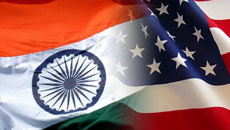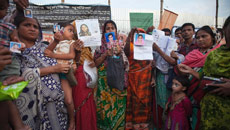The killing of Al Qaeda terrorist Osama bin Laden did not fully quench Americans’ desire for revenge. Instead, according to research, US citizens have a stronger desire to take further revenge against those who were responsible for the 9/11 terrorist attacks.
As the third anniversary of bin Laden’s death falls May 2, a team of social psychology researchers has questioned whether this instance of vicarious revenge led to feelings of satisfaction and re-established justice within the American public - including whether bin Laden’s assassination ignited craving for more revenge.
Vicarious revenge, where the need for justice is felt not by the victims, but by people in the same group, has been shown to feel similar to personal revenge.
Mario Gollwitzer of Philipps University of Marburg developed two studies designed to test the notion “that Americans’ vengeful desires in the aftermath of 9/11 predicted a sense of justice achieved after bin Laden’s death…”
The data suggest that those Americans who believed that bin Laden’s assassination sent a message to the perpetrators (“Don’t mess with us”) were also the ones who thought that his death balanced the scales of justice.
The second important finding from the study is that bin Laden’s death did not fully quench Americans’ desire for revenge.
“Although justice might be achieved, the avengers might not feel psychological closure. Re-establishing justice, successfully asserting one’s message, does not necessarily close the chapter in the case of revenge,” the researchers maintained.
The third important finding showed that Americans were more satisfied with fact that bin Laden was killed intentionally than the possibility of bin Laden being killed accidentally.
The study, titled “Vicarious Revenge and the Death of Osama bin Laden”, has been published online in the journal Personality and Social Psychology Bulletin.






